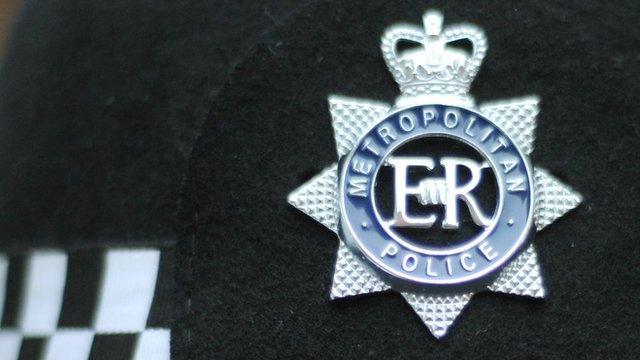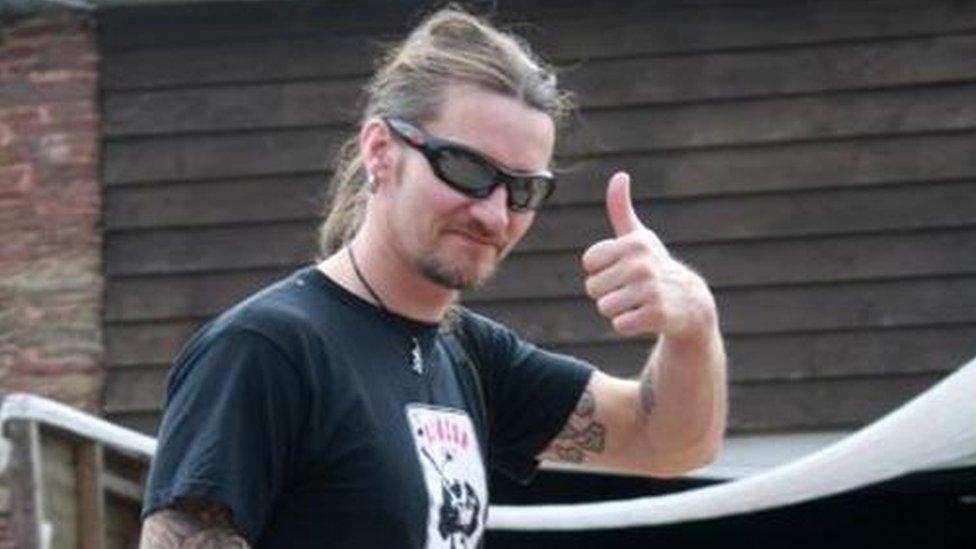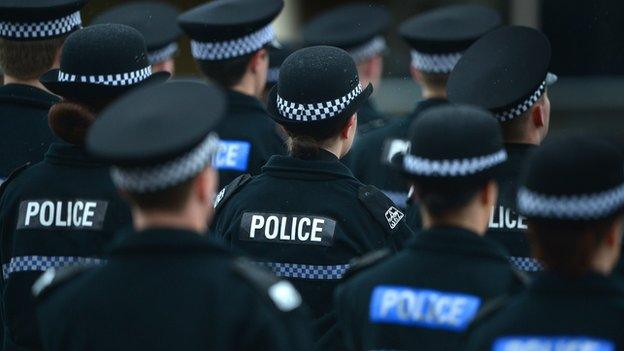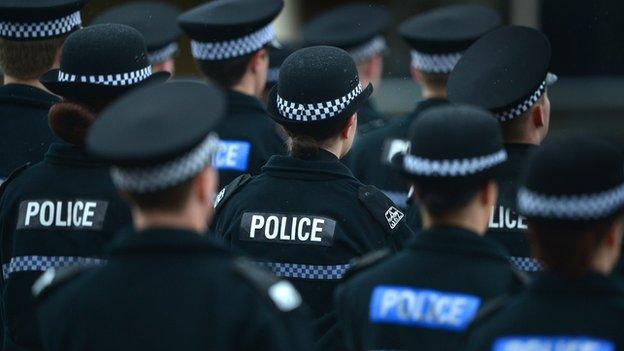Scots spying victims slam decision not to extend inquiry
- Published

The Pitchford Inquiry concerns misconduct by Metropolitan Police officers
Victims of undercover police spying have condemned the decision not to extend the Pitchford Inquiry on the matter to Scotland.
Policing minister Brandon Lewis said it was "not possible" to extend the remit of the probe of undercover policing.
The Scottish government said it was "extremely disappointed" by the decision and opposition MSPs hit out.
A joint statement from victims said the decision "sets the inquiry up to fail before it even begins".
The Pitchford Inquiry was set up in England and Wales to investigate allegations of misconduct by undercover officers, with claims some had fathered children and caused miscarriages of justice.
It is claimed that undercover Metropolitan Police officers were also involved in spying in Scotland, with Mark Kennedy, one of five officers known to have had relationships with women, alleged to have infiltrated environmental groups ahead of the G8 summit at Gleneagles in 2005.
However, Mr Lewis told Scottish Labour MSP Neil Findlay there were a "number of reasons" why the probe could not be extended north of the border, saying there was a risk it could be "acting outside of its powers" as defined in its terms of reference.
He said then Home Secretary Theresa May, who has since become prime minster, had "carefully considered" requests to extend the inquiry, but said it was important that the inquiry proceeded "swiftly and make recommendations as soon as possible".

Mark Kennedy is said to have been among the undercover officers who targeted campaigners in Scotland
However, a group of seventeen victims said they were "extremely frustrated" by the decision, saying officers identified in the inquiry were "active in Scotland for several decades".
Their statement continued: "We have all been personally chosen as core participants because we were significantly targeted by officers in England and Wales.
"We were also all spied upon in Scotland. We cannot have faith in the ability of the inquiry to deliver an opportunity for truth and justice when it is prevented from fully establishing what happened to us."
One of the group, Merrick Cork, added: "It's outrageous that Theresa May thinks victims of police abuse deserve justice in England but not in Scotland.
"The police admit English officers committed human rights abuses against citizens on Scottish soil. It's absurd to expect public trust in police when abuses of power are swept under the carpet, and it's a snub to Scotland to say it doesn't matter there."
'Utterly unjust'
The group called on the Scottish government to continue pressing for the inquiry to be extended, and to look into setting up a probe of its own - something backed by Mr Findlay.
His calls for the inquiry to be extended were backed by MSPs, MPs and MEPs from Labour, the Greens, the Conservatives and the Lib Dems, while Lib Dem MP Alistair Carmichael won backing from SNP MPs when he lodged a similar motion at Westminster.
Mr Findlay said it would be "completely and utterly unjust" for Scottish victims to be "denied access to the truth".

The Home Office said lessons could be learned without studying every specific case
A spokesman said the Scottish government was considering its next steps following the "extremely disappointing" decision.
He said: "We continue to believe that a single inquiry across the UK is the most effective approach to provide a comprehensive and coherent investigation into these matters.
"This narrower approach risks doing a disservice to people in Scotland affected by the activities of a force which falls under the oversight of the Home Office. We will now consider how best to take this matter forward."
Mr Lewis's letter to Mr Findlay said: "The inquiry as it stands is extensive and complex, with around 200 core participants. Amending the terms of reference at this stage would require further consultation and delay the progress of the inquiry.
"In the interests of learning lessons from past failures and improving public confidence, it is important that the inquiry can proceed swiftly and make recommendations as soon as possible.
"The Home Office is confident the inquiry can both gain an understanding of historical failings and make recommendations to ensure unacceptable practices are not repeated without a need to consider every instance of undercover policing, wherever it was taken."
- Published28 July 2016

- Published28 July 2015
